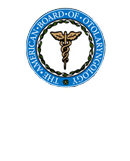Difficulty Flying?
If you are convinced that you are more likely to suffer from sinus infections and breathing problems after flying, you are not being paranoid. Air travel can create absolute havoc on the sinuses of people who already suffer from conditions such as sinusitis. In fact, infection is one of many negative side effects of flying. Blockages, severe pain, tension headaches and even further damage to the lining of the sinuses can occur due to the change of pressure during takeoff and landing.
Although not common, there is also the risk of developing serious health issues as a direct result of flying for people with existing sinus problems. Tinnitus, vertigo and hearing loss can occur when sinus pressure and ears are not able to equalize. To avoid a generally uncomfortable flight and reduce the likelihood of developing related health conditions, prevention is the best cure. Treating aggravated sinus problems after flying will only address any resulting symptoms.
Medications may help some patients, but for others, a more permanent treatment option is recommended. To protect your general health, it is best to consult with Dr. Greg Levitin before your planned flight to find out which steps you should take for a more comfortable in-air experience.
Treatment and Relief so You Can Fly Comfortably Again!
Dr. Greg Levitin is a board-certified otolaryngologist-head and neck surgeon and a fellow of the American Academy of Otolaryngology-Head and Neck Surgery (AAO-HNS). Under his care, you will receive a comprehensive assessment which will include diagnosis of any sinus or nasal problems that are affecting your ability to fly in comfort. Before your consultation, it is important to think of any symptoms you experienced during or after previous flights. Dr. Levitin may also ask to explore your medical history to look for any historical signs of nasal problems or congenital sinus issues.
In most cases, a balloon sinuplasty is a suitable treatment for providing relief. The procedure opens up the sinuses, which improves airflow and allows pressure to effectively stabilize during takeoff and landing. Other benefits of this treatment include a reduced chance of infection, congestion and alleviation of other symptoms associated with conditions such as sinusitis. Alternatively, Dr. Levitin may recommend endoscopic sinus surgery based on the findings of his diagnosis.
The age of the patient and severity of any condition contributing to problems while flying will also have an impact on which treatment option is most suitable. If you have consulted with another doctor in the past and were not provided with treatment options, there is still hope. Contact our office today to schedule a consultation. Dr. Greg Levitin has been able to offer solutions to countless patients who came to our offices seeking a second opinion.













